The Best Formulas For Reflux & Spitting Up (2024 Guide)
This post may contain affiliate links. As an Amazon Associate, I earn from qualifying purchases. Please read my disclosure.Does your baby spit up frequently after feeding? Acid reflux, or a condition wherein food and stomach acid back-flow into the esophagus and throat, is common for young babies. In this in-depth and parent-friendly guide, I explain what causes acid reflux, how mild and severe cases differ, and I will share the list of the best acid reflux formulas to help your baby be comfortable, grow, and thrive.
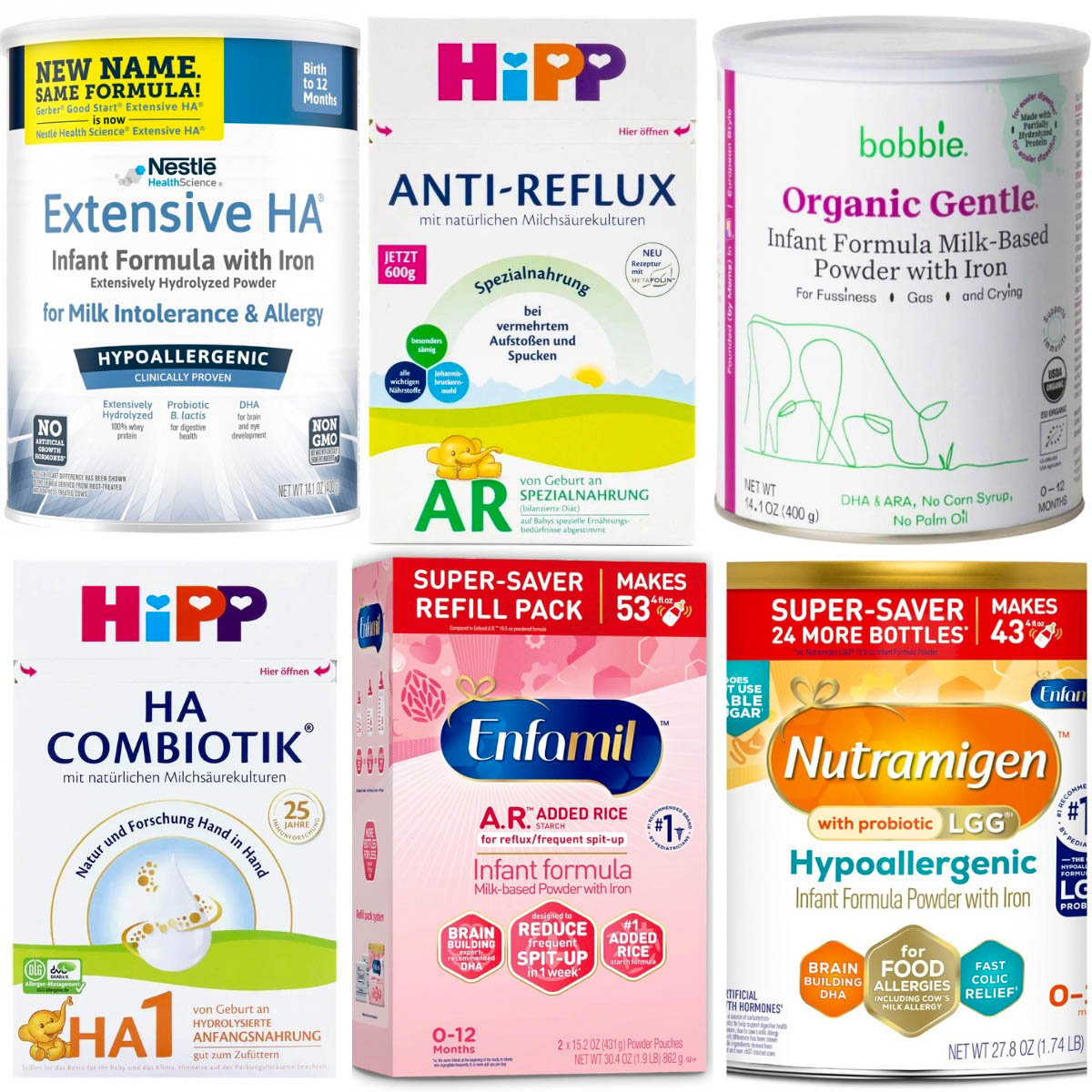
Finding the best baby formula for your little one can be stressful, but if you need to find an acid reflux or hypoallergenic one, the process is even more difficult. I know how confusing it can be to try to figure out what is causing your baby’s reflux! And, even once you discover the cause, it’s equally confusing to make sense of all the different acid reflux-related formulas available, and figure out what really is the best baby formula for reflux.
Many babies spit up – it’s a normal part of infancy (source). Sometimes, however, it may seem like your baby barely keeps anything down or you may be concerned about their failure to gain weight or grow because they are spitting up so much.
So when do you know if your baby’s spit up is something to be worried about? In this post I will review what infant acid reflux is, the differences between normal and mild reflux and severe reflux, when you need to be concerned and see a doctor, and the best anti reflux formulas on the market today.
But First, A Disclaimer
As a board certified health coach and certified nutritionist, I support products and ingredients that are rooted in science and are evidence-based. Using my background in nutrition, along with extensive research, consultations with experts, and my own experience giving my two kids formula, I was able to arrive at this list of the best formulas for acid reflux in this guide.
Though I may receive a commission (at no extra expense to you) if you purchase through some of the affiliate links provided, I only recommend products I’ve researched, evaluated, consulted experts on, and would feel comfortable giving to my own two children.
As always, I only share products that are the highest quality and that can help you and your family the most. By purchasing any of these products from the links below, you help keep this blog running, so thanks for your support!
Keep in mind that every baby & situation is different, especially when it comes to reflux, so always consult your child’s pediatrician to diagnose and treat reflux before starting or switching to a new formula. My recommendations are not a substitute for professional medical advice, diagnosis, or treatment.
What Is Acid Reflux?
Infant acid reflux is when a baby spits up recently consumed liquid or food (source). Specifically, the food or liquid consumed reaches the stomach but then returns back up to the esophagus, or the feeding tube that connects the throat to the stomach (source). More than half of all babies experience gastroesophageal reflux (or GER) within the first 5 months of life (source); such reflux usually develops by 3 weeks of age and is resolved by the time babies are 12 to 18 months (source).
Acid reflux occurs at high rates in infants because the esophageal sphincter (or valve) that prevents food from flowing from the stomach to the esophagus is not developed or strong enough yet to hold in all of the stomach’s contents (source). Acid reflux can also be caused by lactose intolerance when babies lack the enzymes necessary to digest lactose in infant formula (source), or milk allergies when they cannot digest the complex proteins found in baby formula (source).
The most common form of reflux is called gastroesophageal reflux (GER) and looks like regurgitating or spitting up liquid or food. If babies are gaining weight and developing normally, this form of GER isn’t typically a cause for concern. In this mild form, babies are often relieved after spitting up, as doing so releases pressure in their digestive tract (source). Because of this, GER is also referred to as “happy spitter” or “milk reflux.”
Occasionally, GER can develop into gastroesophageal reflux disease (GERD), a more serious and long-lasting form of reflux. When suffering from GERD, the reflux episodes are persistent enough to irritate or cause damage to the lining of the esophagus (source). This irritation and damage often results in a reduced desire or ability for your baby to feed which then interferes with their growth and development (source).
A third type of reflux is silent gastroesophageal reflux disease (silent GERD). This form is “silent” because outward symptoms of the reflux are not always present. That is, the contents of the stomach only reach the esophagus and are not expelled from the mouth, making it tricky for parents and medical providers to notice and diagnose (source).
Note: Though vomiting and GERD overlap, they are not always the same. Some people interchangeably use the terms “vomit” and “spit up,” but vomiting is more forceful and is a larger amount (source). Spitting up is smaller in quantity (even though it can look like a lot) and doesn’t project as much, even if your baby does so more forcefully. If your child consistently projectile vomits or if their vomiting seems unrelated to acid reflux, it is important to talk to your baby’s doctor (source).
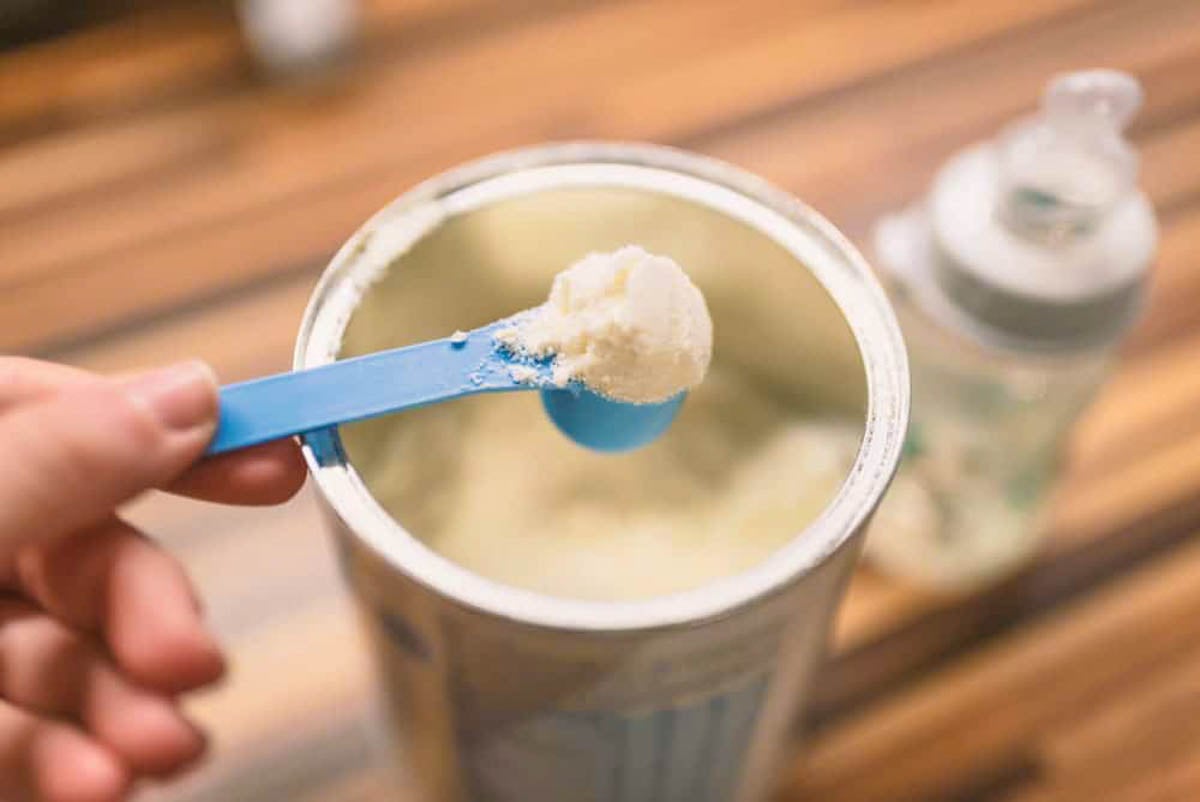
Symptoms Of Severe Acid Reflux In Infants
Now that we have explored the different types of acid reflux, how are you to know when your child has GERD, not just milk reflux?
The following is a list of the most common symptoms of GERD (source 1, source 2). If your child exhibits any of these, promptly make an appointment with their pediatrician, as they can indicate a serious condition:
- Refusal to eat or poor feeding
- Isn’t gaining weight or is losing weight
- Looks to be in pain during or after eating: cries, arches their back, or is irritable
- Coughing, choking, or trouble swallowing
- Wheezing, or difficulty breathing
- Blood in stool
- Stools that resemble coffee grounds
- Green or yellow spit up
- Blood in spit up
- Hoarse crying
- Baby’s belly is swollen, feels hard, or is distended
Treating Acid Reflux In Babies
If you anticipate that your baby has reflux, always speak with your child’s pediatrician to develop a treatment protocol. Depending on the severity or cause of their reflux symptoms, their doctor may include some of the following treatments:
Mild Reflux
To treat “milk reflux” or GER, your doctor may recommend any of the following treatments.
Smaller Feedings: Decreasing the amount of milk at each feeding while increasing the frequency can control the volume of food in your child’s tummy. Having less volume in the stomach at one time can reduce the likelihood of reflux (source).
Upright Feedings: To reduce the chances of regurgitation, feed your baby upright and keep them upright for 30 minutes afterward. Gravity can help keep the liquid in your baby’s stomach.
Adjusting Bottle Nipple Size: Too strong of milk or formula flow can give your baby too much fluid too fast. Your doctor may recommend decreasing your nipple size to slow your baby’s feeding rate. Furthermore, always keep the nipple full of milk as your child feeds. Ingesting air as they drink can cause feeding discomfort and increase their spit up frequency.
Thickening Formula: For formula-fed babies, some anti-reflux formulas will add additional starch to thicken it up slightly, making it harder to regurgitate (source). I don’t recommend adding rice cereal to formula directly, as it can be a choking hazard and can cause other complications with feeding (source).
Frequent Burping: Burping more often will help your child release air that gets caught in their digestive tract, and reduce spitting up (source). If formula feeding, burp your baby after every 1-2 ounces.
Severe Acid Reflux (or GERD)
If your child is exhibiting symptoms of GERD, or severe acid reflux, they may recommend switching to a different formula. This is because many formula brands are made with cow’s milk, and cow milk proteins are known to aggravate reflux in some children (source).
Some doctors may also recommend starting antacid medication (source). In rare and extreme cases, your doctor may recommend that your child see a gastroenterologist for treatment or surgery.
Note: Never start or switch formulas without speaking to your child’s doctor first. If you are concerned that your child has GERD, see your doctor first for diagnosis, a treatment protocol, and formula recommendations.
Switching Formulas To Treat Reflux
If your doctor recommends that you switch your baby’s formula to treat reflux, they may recommend different types of formula depending on the severity and cause of it:
- Happy Spitter: If your child is a happy spitter and isn’t in pain after spitting up, but your doctor is still concerned about their failure to gain weight, a formula created for acid reflux or a goat milk formula could be best for your little one.
- Milk Protein Intolerance: The best formulas for milk protein intolerance or cow milk protein allergy are hydrolyzed protein milk and A2 milk formula. Hydrolyzed infant formula, often called hypoallergenic formula, is made with broken-down proteins that are easier for your child to digest. A2 milk-based formulas, such as goat milk formulas, are made with a different type of casein protein that is also known to be easier on digestion.
- Lactose Intolerance: If your doctor determines that your child’s reflux issues stem from not tolerating lactose, the primary carbohydrate in many infant formulas, your doctor may encourage choosing a formula without lactose, such as dairy-free, plant-based, or soy-based formulas.
Best Formulas For Reflux
Now let’s get into the best formulas for acid reflux!
- Acid Reflux / Spit Up And Colic: This category of formulas is designed specifically for babies with acid reflux. Many of the formulas are made with thickeners to help the milk stay down, reducing regurgitation, and a few others are made with broken-down, or hydrolyzed, proteins. Though some of the formula brands say “AR” on the box, not all of them will.
- Goat Milk & A2 Milk Formula: The A2 milk protein found in goat milk is easier to digest than the A1 protein found in most cow milk (source), making it an easier-to-digest option. Since they’re both made with A2 proteins, I’ve added A2 cow milk formulas to this category as well.
- Hypoallergenic Formula: Instead of being made with more complex milk protein, hypoallergenic formulas are made with broken-down or pre-digested proteins or amino acids to make the formula easier for babies, especially those with cow milk allergies, to digest (source).
- Lactose-Free Formula: Since most formulas are made with lactose as the primary carbohydrate, lactose-free formulas are a great option for any babies diagnosed with lactose intolerance.
Acid Reflux / Spit Up And Colic
HIPP AR
HiPP AR is the best formula for reflux. It is made in Germany and has the cleanest ingredient list. It is non-GMO, sugar-free, free of pesticides, antibiotics, and hormones, and is made according to the strictest EU regulations. It is thickened with carob bean gum which helps the formula to stay down, preventing spit-ups without any added starches. This formula also contains prebiotics, probiotics, DHA, and ARA, making it a comprehensive and nutritious anti reflux formula.
Bobbie Organic Gentle Infant Formula
Made with 100% lactose, just like breast milk, Bobbie Organic Gentle contains smaller milk proteins making it easier for babies to digest. It isn’t made with thickeners, but 75% of parents who fed this formula to their babies said it lowered the frequency of spitting up and gas (source). For this reason, Bobbie Organic Gentle is the best formula for reflux and gas. Just because you’re choosing a gentle digestion formula for your kiddo doesn’t mean that you need to sacrifice health and nutrition, either: just like the standard Organic Bobbie Formula, their gentle variety is USDA-organic, non-GMO, Clean Label Project Purity certified, soy-free, and sugar-free.
Enfamil AR
This powdered formula is made specifically for babies with acid reflux making it another of the best formulas for spit up. Made with added rice, Enfamil A.R. has a thicker consistency which is known to reduce the frequency of spit ups by over 50% within one week. This reflux baby formula also contains iron, DHA, ARA, and prebiotics. Maltodextrin and starch are also used to thicken the formula, but it has no added sugar or syrup solids. Enfamil A.R. is the best American-made acid reflux baby formula on the market today.
Enfamil A.R. Ready to Feed Infant Formula
For a ready-to-feed formula for spit up, Enfamil A.R. Ready to Feed baby formula bottles are the best bet. This pre-mixed formula is ready for your baby when they are, no measuring, mixing, or waiting required. This version of Enfamil A.R. is also thickened with rice starch, helping your child keep their formula down. Enfamil is the brand most recommended by pediatricians for acid reflux. Just keep in mind: it is not organic, uses carrageenan as a stabilizer, and has maltodextrin and starch, but otherwise has a relatively clean ingredients list: non-fat milk and lactose are the primary carbohydrates, no sugars are added, and the formula includes prebiotics, DHA, and ARA.
Hypoallergenic Formula
HIPP HA
Long-chain milk proteins can be hard on babies’ digestion, so HiPP HA is made with proteins that have been hydrolyzed into smaller pieces. It is the best formula for gas and gentle digestion. This hydrolyzed protein formula helps improve any indigestion associated with milk allergies, but it can also help with adverse skin reactions and other allergic reactions. Though there is a small amount of starch added to HiPP HA, it’s only enough to give the formula a smooth and creamy texture similar to breast milk. This formula also contains probiotics, prebiotics, DHA, and ARA, making it one of the best hypoallergenic formulas. Note: because of strict European Union standards, hydrolyzed proteins cannot be certified organic but all of the other ingredients in this product are organic.
Enfamil Nutramigen Infant Formula
Choose Nutramigen if your child has been diagnosed with cow’s milk allergy (CMA / CMPA) or colic. Nutramigen by Enfamil is a gentle, lactose-free baby formula containing nutrients found in breast milk such as DHA, ARA, probiotics, and choline. This is the best formula for acid reflux and colic; it is clinically proven to relieve colic due to a cow’s milk allergy within 24 hours. Enfamil Nutramigen is made with extensively hydrolyzed proteins, which are the least likely to trigger an allergic response, and LGG, a probiotic studied for allergy management. Nutramigen is not organic and is made with corn syrup solids as the first ingredient, but it is one of the best reflux formulas and can be necessary if a more serious cow’s milk allergy is causing your baby’s reflux.
Gerber Extensive HA
For a reflux formula designed for babies with cow’s milk protein allergies, Gerber Extensive HA can be another great option. Made with extensively hydrolyzed proteins, probiotics, and no lactose, this formula is specifically designed for children with cow’s milk protein allergy and intolerance, soy protein sensitivity, and fat malabsorption. It is the only 100% hydrolyzed formula on the market today, making it the best formula for milk allergy and acid reflux. While it’s not organic, it has a relatively clean ingredient list (although it does include maltodextrin) and does not contain any added sugar or syrup solids.
Neocate Infant with DHA and ARA
Neocate Infant is a hypoallergenic formula specifically designed for babies with food allergies who are 0-12 months of age. So, if your doctor has determined that cow’s milk or other food allergies cause your child’s discomfort, Neocate is a fantastic option. It is made with an amino acid base instead of hydrolyzed proteins. In addition, it is dairy-free, lactose-free, and made in a dairy and protein-free facility. The formula contains DHA and ARA and does not contain palm oil, soy oil, artificial flavors, colors, or sweeteners. It does, however, contain a high percentage of corn syrup solids.
EleCare
For another amino acid-based baby formula, consider EleCare. Similar to Neocate, it is made with 100% free amino acids, making it a superior option for babies who cannot tolerate hydrolyzed proteins or have a more severe cow’s milk protein allergy at the root of their acid reflux issues. EleCare has added DHA and ARA for brain and eye development. The formula does have corn syrup solids as the first ingredient, but it is safe for babies with food allergies.
RELATED: BEST HYPOALLERGENIC BABY FORMULAS
Goat Milk & A2 Milk Formulas
Jovie Goat Milk Formula
Jovie is my top pick when it comes to goat milk baby formula. It is made with full-cream, whole goat milk that is loaded with prebiotics. In addition, this formula is organic, contains no sugar or preservatives, and contains essential fatty acids DHA and ARA which aren’t extracted with hexane. Unfortunately, Jovie is not vegetarian-friendly (due to the fish oil used for DHA) but otherwise, it is a fantastic goat milk formula option.
Kendamil Goat
Goat milk formula is a naturally easier-to-digest option for babies, as it contains A2 milk protein and more short and medium-chain fatty acids. These factors result in softer curds in young digestive systems, making digestion smoother. Kendamil Goat Milk Formula is made with full-fat goat’s milk. It has milk fat globule membrane and prebiotics, as does breast milk, making it a great formula for spit up and reflux. Kendamil is certified vegetarian-friendly and non-GMO, contains DHA and ARA, and has no palm oil, added sugars, or starches.
Kabrita USA
Kabrita Goat Milk Toddler Formula is technically made for children ages 12-24 months but meets the nutritional requirements for infant formula. If you choose to try this for your infant with reflux, make sure to get your pediatrician’s approval first. This formula is naturally easier to digest than cow’s milk, has a mild taste, and contains DHA, ARA, and prebiotics.
Aussie Bubs Goat Milk Infant Formula
Made in Australia with Australian goat milk, Aussie Bubs offers a high-quality and more affordable goat milk formula. This non-GMO option is vegetarian-friendly, made without added sugars, contains DHA and ARA, and is Clean Label Purity Project certified. If you’re looking for one of the best formulas for gas and reflux, Aussie Bubs is a great pick! It does not contain probiotics, but you can easily supplement them with your doctor’s approval.
Holle A2 Formula
Choose Holle A2 cow milk formula if your little one is determined to have a cow’s milk sensitivity. This formula is made with A2 cow’s milk. The A2 beta-casein protein type is typically easier to digest than A1 milk proteins, the more common protein in cow’s milk. This formula allows babies to continue drinking cow’s milk without the protein that causes the discomfort. Holle A2 contains DHA but does not have ARA, prebiotics, or probiotics.
RELATED: BEST GOAT MILK BABY FORMULAS
Lactose-Free Formulas
BéBé M Organic Rice-Based Infant Formula
BéBé M (BéBé Mandorle) Organic Anti-Reflux Rice-Based Infant Formula is a French-made formula that is 100% vegan and organic. It is made from an organic rice protein hydrolysate and organic coconut oil, almond oil, and rapeseed oil, making it ultra gentle on infant digestion. BéBé M is dairy-free and soy-free formula, making it a best formula for acid reflux and gas. It is also a safe option for children with cow’s milk allergy.
Note: This product is labeled as “Foods for special medical purposes (FSMPs)” and should be only given under medical supervision. Please consult your pediatrician before starting your baby on this formula.
Premibio Organic Vegan Baby Formula
A French vegan baby formula, Premibio is dairy-free, lactose-free, and made according to the strict regulations of the European Union’s European Food Safety Authority (EFSA). The formula is made with hydrolyzed rice protein, making it easy to digest, safe for children with cow milk allergies, and a great acid reflux baby formula. Though Premibio has added plant-based DHA, is organic, and is sugar-free, it does contain organic corn maltodextrin and doesn’t have prebiotics or probiotics.
Enfamil ProSobee Soy Sensitive
Enfamil ProSobee infant formula is designed for lactose-intolerant babies. It is a soy-based formula that is plant-based and non-dairy. Because it lacks lactose or milk proteins, it helps relieve fussiness and gas caused by milk-related allergies and sensitivities. Enfamil ProSobee comes in liquid, concentrate, or powder form and is generally easy to find and in stock in the United States. The formula contains GMOs and is not organic, though it is more affordable than most vegan and plant-based formulas.
Similac Soy Isomil Baby Formula
Similac Soy Isomil is a soy-based formula developed for babies with lactose intolerance, fussiness, and gas. It is easy to find in stores and is the most budget-friendly baby formula for spit up on this list. Derived from soybeans, Similac Soy Isomil is easy to digest, nutritionally complete, and contains DHA. Unfortunately, this formula’s number one ingredient is corn syrup solids, making it high in added sugar. It is also not organic and contains GMO ingredients.
RELATED: BEST PLANT-BASED AND VEGAN BABY FORMULAS
FAQs
Choosing the best bottle for reflux will go a long way in helping your baby feel more comfortable during feeding time. Pediatrician-recommended Dr. Brown’s Original Bottles are my top pick. These bottles have a patented vent system that prevents your baby from ingesting air as they feed, a known cause of mild reflux (source).
When it comes to reflux, a smaller nipple size is better. Although you don’t want the nipple to be so small that your baby becomes frustrated, larger nipple sizes can cause too much milk to be ingested at once, causing discomfort.
Brands generally determine bottle nipple size by age, but when it comes to preventing reflux, this sizing method isn’t always the best route. A good rule of thumb is to stick with the smallest-sized nipple your baby tolerates. You will know that your baby is ready to size up when your child falls asleep when eating, gets fussy while eating, takes longer to finish their bottle, or sucks fast without many swallows.
Studies show that breastfed infants have lower instances of reflux since breast milk empties from the stomach faster than formula (source). If you are breastfeeding your baby and they are showing signs of reflux, speak with your child’s doctor to determine the severity, cause, and potential treatment. If there is an allergen in your breast milk, your doctor should work with you to identify it so you can eliminate it from your diet. If your child still suffers reflux after making dietary changes, speak with your pediatrician about switching to an anti-reflux or hypoallergenic formula.
Many factors can trigger reflux in babies. The most common form of reflux in babies is mild reflux. It often occurs because infants eat a liquid diet and spend so much time on their backs. More severe forms of reflux, such as gastroesophageal reflux disease (GERD), can be caused by having more stomach acid, issues with how the lower esophageal sphincter works (source), or can be related to cow’s milk protein allergy or lactose intolerance (source).
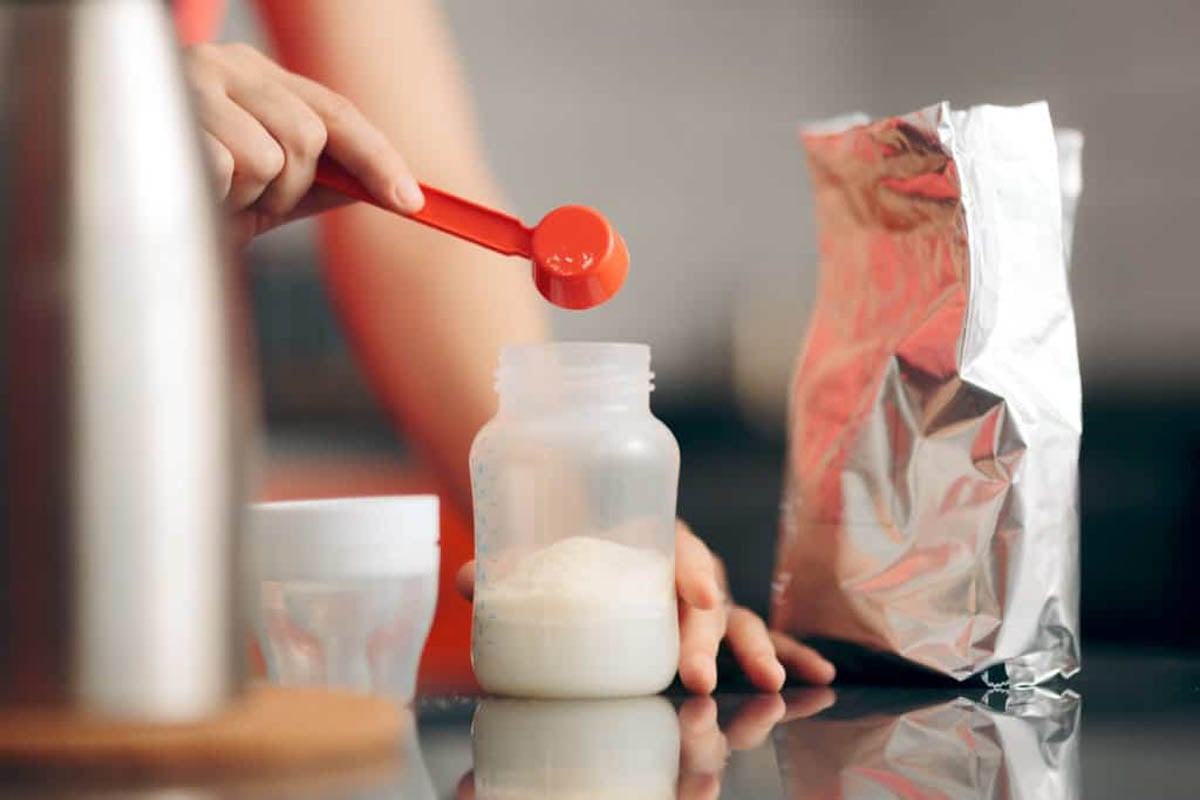
Final Thoughts
Whether it is your first time as a new parent, or your fifth child, being the parent of a newborn is tough. With sleep deprivation and potential hormones factoring in, I know how hard it can be to figure out what behaviors and situations are worth worrying about and which are part of normal and healthy early infancy.
Remember that spitting up is usually a normal part of this period. If you have any concerns about your child having gastroesophageal reflux disease (GERD), there are treatments and formulas that can help. As a first step, make sure to always bring your questions and concerns to your child’s pediatrician and they will help you determine the best course of action for your child. I hope this guide helped you navigate the world of anti-reflux formulas!



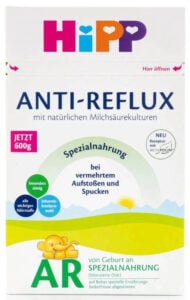
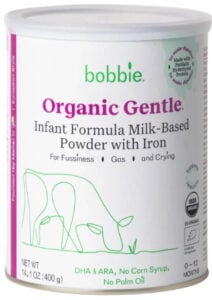
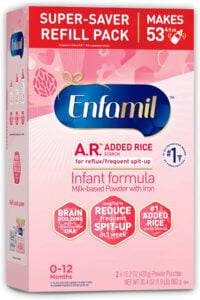
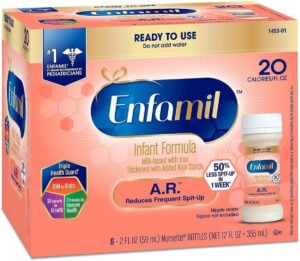
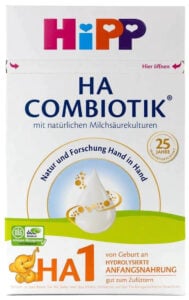
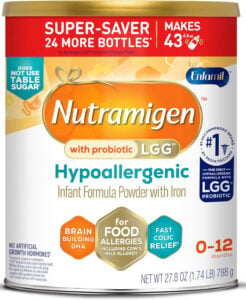
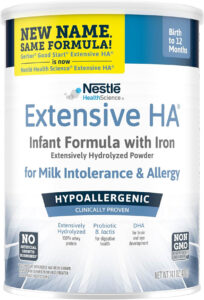
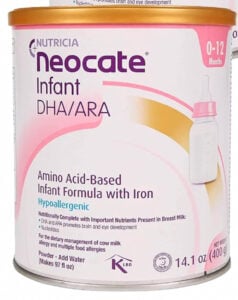
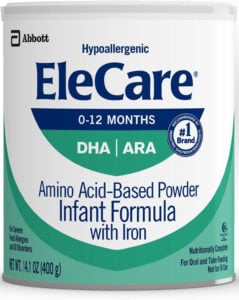
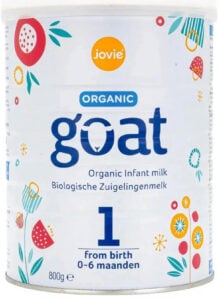
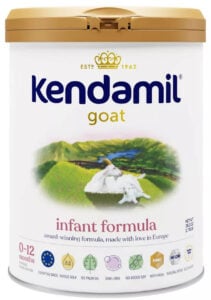
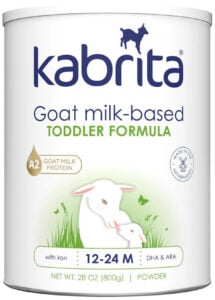
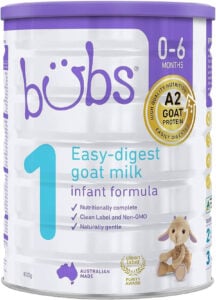
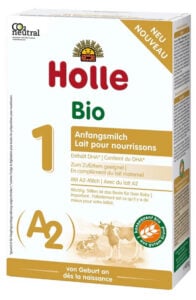
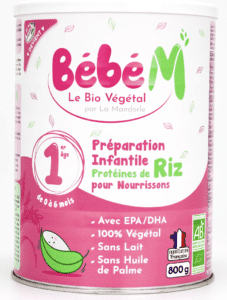
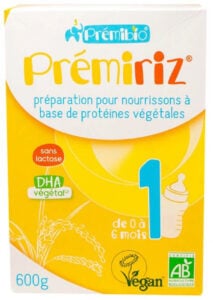
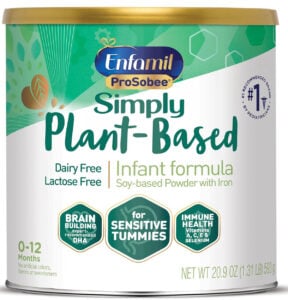
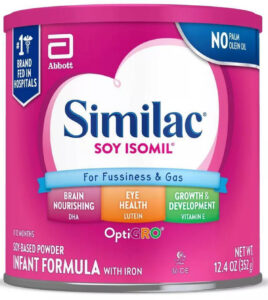
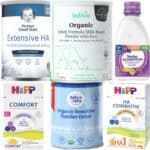
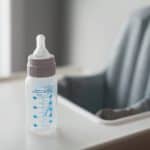

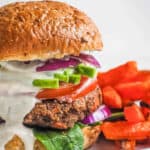



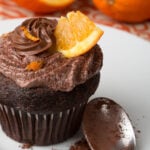
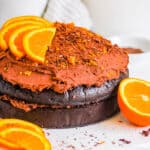
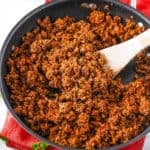
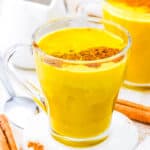
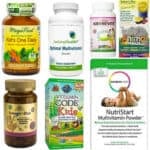
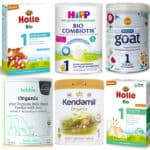

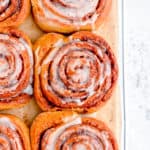
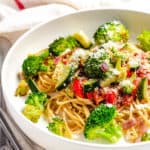
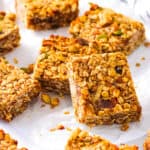



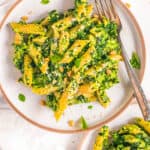
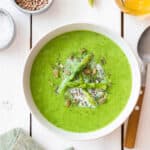
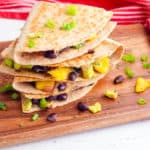
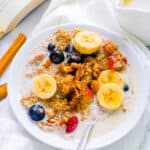

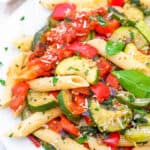
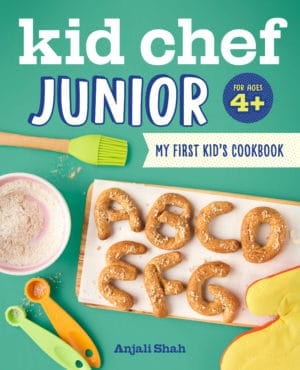


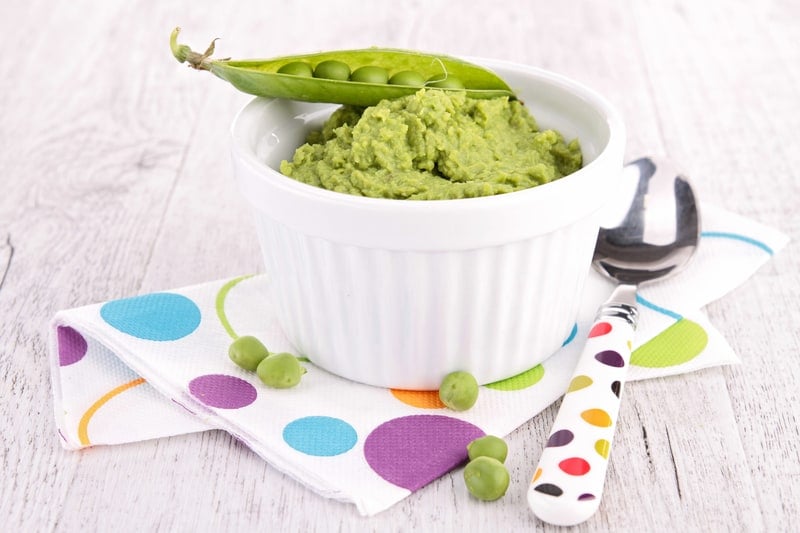
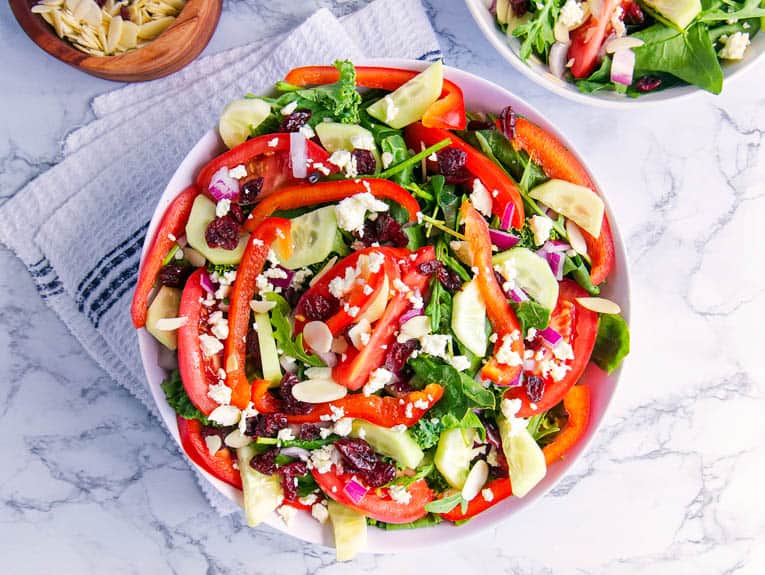



Hi
My baby is was born at 27 weeks gestation and was in the NICU for 120 days, came home with a NG tube and is on ng tube feeds since (5mobths corrected age now, but 8 months old by the book).
She has severe GERD and vomits all of her feed, failure to put on weight.
We used Nestle nan comfort 1, then switched to nan optipro 1 along with Aptamil thickener and now giving Novalac Reflux but not much change in vomiting. We live in Australia, please recommend something similar to HIPP here as we don’t have that brand and don’t have emfamil too unless Aptamil is the same.
Hi Lahari! Thanks so much for reaching out and I’m so sorry your baby has had such a hard time eating!! That must be so stressful (along with everything else you both have gone through!) To your question – I don’t think Enfamil and Aptamil are the same, I believe Aptamil is owned by a French company and Enfamil is owned by a US company. As for AU specific formulas for reflux, unfortunately I’m just not that familiar with what’s being sold in Australia to be able to give you good advice here! However, Organic’s Best Shop does sell HiPP AR and ships to Australia – so you can try ordering from them if you want to try HiPP AR! Of course, before you switch formulas, make sure your pediatrician agrees with the change and is supportive of your decision! Hope that helps!